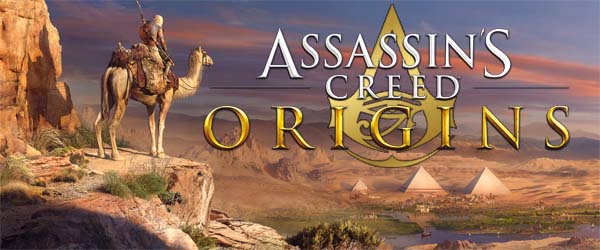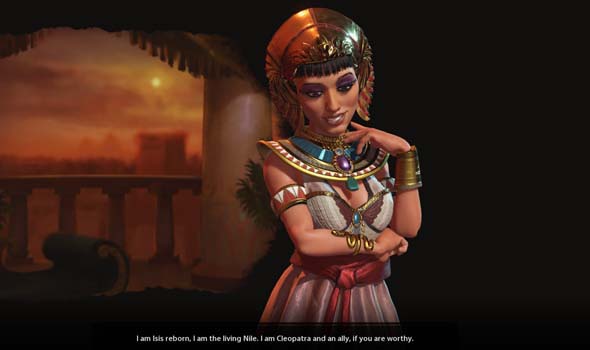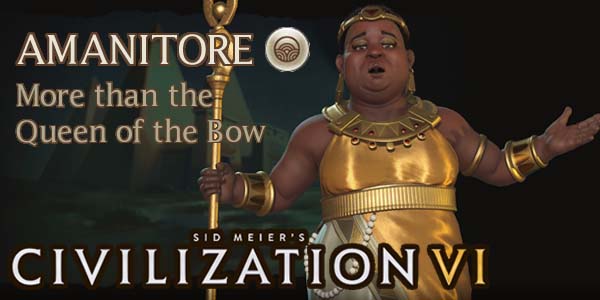
When Civilization V first launched back in 2010, it was in a pretty ugly, incomplete state. The game was buggy, was very slowly-paced, was completely missing any sort of espionage mechanic, and had other gaping holes in its design. It took about six or eight months' worth of patching and updating from Firaxis before the game reached a state that I would consider "adequate". Its first expansion, Gods & Kings basically came off as a fan wishlist, as it re-added (and re-vamped) many of the features and systems that had been removed between Civ IV and Civ V (religion and espionage). That expansion also addressed a lot of core complaints with the game by dramatically improving combat balance and A.I. intelligence. The second expansion, Brave New World, almost completely re-invented the game and added a considerable amount of innovation in the form of trade routes and the new great works and artifacts systems. It also added an exceptional, robust roster of new civilizations.
Civilization VI launched with most of Brave New World's innovations still in place (though culture seems to have regressed a bit), and also added its own new innovations in city management. It felt like a much more complete game at launch than Civ V was. At the time, I was blown away by Civ VI, but as time has gone by (and I've increased the difficulty level), my enthusiasm for the game has diminished a bit.
I really enjoy the game when I play it on the King difficulty level (the "easiest" of the "hard" difficulty levels, in which A.I.s only get very slight bonuses). As soon as I up the difficulty to Emperor, I start to get frustrated, and the game becomes much less fun. The problem is that on the difficulty that I enjoy (King), the A.I. puts up very little resistance, and the game (though fun) is generally too easy. I can play the game on Emperor (I haven't experimented much on Immortal or higher in VI yet), but the stacking of the deck makes the game less enjoyable because I often feel that I'm blocked out of many early-game strategies that I want to try (such as early religion or wonders). It's all possible to accomplish, but it's prohibitively so, and the game often pushes me too far in the direction of militancy.
Doesn't address core game issues
Nope. Still no build queue...
In summary, while Civilization V's first expansion filled many of the gaping holes and addressed many of the flagrant flaws in vanilla Civ V's design, VI's first expansion mostly just stacks additional mechanics and features onto an already-complete game, while leaving many of VI's annoyances, quirks, and genuine flaws un-resolved. Let's get these complaints out of the way first.
Rise and Fall does little to address complaints with shallow unit upgrade paths. There's still generally only a single unit of a given unit class every other era.
Rise and Fall does very little to improve the combat systems in general. Units still die far too easily (in my opinion) (though this seems to be due in large part to the disparity in unit upgrade levels mentioned above), and imbalances between melee, ranged, and mounted units are still prevalent.
Rise and Fall does nothing to address complaints that I've had with the maps feeling very crowded and claustrophobic.
Civilization VI back-loads most of its culture, tourism, artifact, and great work systems into the second half of the game, and Rise and Fall does very little to make these feel like game-long engagements the way that Brave New World mostly did.
It does very little to make the late-game victory march feel less like a slog, or to make the early-game feel less rushed (especially on higher difficulties).
It does very little to address complaints with how the A.I. agendas can make them very erratic and schizophrenic. A.I.s are still far too willing to agree to joint wars against their own friends, allies, and trade partners, and joint wars in general still feel like a cheap loophole that lets warmongers bypass the casus belli system and warmonger penalties. Further, while the expansion does allow for deeper alliances with mutual benefits for the civs involved, it does not expand alliances to the point of allowing for shared or cooperative victories. So dipomacy in general still feels like a zero-sum-game with every civ acting to the exclusion of all others.
There's still no icon or indication that a unit has experience bonuses from barracks or buffs such as "Spears of Fion", or to indicate which abilities or penalties a given unit has by default.
We still can't assign military units to escort traders, nor can we see the path of any particular trader after it's started a route. And Trade routes themselves still don't generate reciprocal profit by default, meaning there's no reason to want other civs to send routes to you (other than getting a free road out of it, which isn't all that rewarding).
There's also still no build queues for cities!
Religion was overhauled in a patch last year, and religious units occupy their own layer.
Some major game upgrades have already been made available via post-release patches and DLC updates, and I'm grateful for those. New resources and wonders have trickled in since launch. One of the best improvements came in an update last year that allowed religious units to exist on their own layer, so that swarms of missionaries don't block your own units' movement in your territory. And the religious system in general was improved. So the game, overall, has improved a little bit since release. It just hasn't improved as dramatically as Civ V had improved in its first year. Though, to its credit, Civ VI didn't have as much room for obvious improvement. [More]
632a8ce2-8692-4ca9-aebc-779064580062|0|.0
Tags:Sid Meier's Civilization, Civilization IV, Civilization VI: Rise and Fall, strategy, history, dark age, golden age, loyalty, emergency, alliance, Cree, Poundmaker, Dutch, Netherlands, Wilhelmina. Georgia, Tamar, Chandragupta, India, Korea, Seondeok, Mongolia, Genghis Khan, Scottish, Robert the Bruce, Mapuche, Lautaro, Zulu, Shaka

Hey, I actually managed to play and review all of this past holiday season's big, Triple-A releases! Hooray for me! I mean, sure it's the end of February, and I'm just now reviewing a game that came out last October, but at least I did play it.
Since the refreshing exceptionalism of Black Flag, the Assassin's Creed franchise has been scarred by mediocrity and controversy. As such, I opted to buy the game used off of eBay so as not to support Ubisoft. This is after I had enjoyed Black Flag so much that I happily bought a retail gift copy for a friend and recommended the game to yet another friend. Heck, if the save file could have been transferred over, I would have gladly traded in my PS3 copy of Black Flag for a PS4 retail copy.
Even Ubisoft realized that the series was growing stale, and stopped their cycle of releasing two or three games per year. It's been two full years since the last full release (Assassin's Creed: Syndicate in 2015). The extra time certainly helped elevate Assassin's Creed: Origins above the chaff of the rest of the franchise, but not quite enough to propel it to true greatness.
I played Origins on PS4, which means that I avoided the frustrations that many gamers reported involving Origins' multiple layers of DRM slowing down their computers. Wait, isn't Ubisoft the company that, years ago, publicly stated that DRM doesn't work, and that they "don't want to punish a paying player for what a pirate can easily work around"? This same company is now putting not one ... not two ... but three separate DRM applications on a single game? One of which is their own proprietary distribution service, U-Play? Is the company lying, or are they just scatterbrained and can't make up their mind? Or is the management just incompetent?
Would exploring tombs and temples by torchlight become a common mechanic?
Well, when I started up the actual game, I was pleasantly surprised that it starts off pretty damn strong. Even Black Flag was mired by an opening act that stranded players in a tedious, bog-standard Assassin's Creed
sandbox city for a couple hours before opening up the seas by giving us our own pirate ships. Origins, however, has a very strong, distinctive opening chapter that eventually gives way to a more bog-standard gameplay experience.
After an admittedly-silly and confusing opening cutscene that utterly fails to establish the setting or characters, Origins throws the player into a one-on-one duel to highlight the new combat mechanics, then hands main character Bayek a torch and asks the player to explore and escape from a derelict Egyptian temple. Then we head off across an intimidating swath of Saharan desert to the oasis that is Bayek's home town. Here, we have some open-ended exploration, hunting, rescue, and assassination missions. During this, we are introduced to the game's shining star: its setting and environment.
Classical Egypt is magnificently brought to life in this game. The map is vast and spread out, with large swaths of barren desert and sand dunes separating some of the game's regions. Small farming settlements and market hubs dot the environment, and each feels like a necessary part of a functional society. Best of all, Bayek isn't stopping every ten steps to pick up some random, meaningless collectible, and our map isn't cluttered with icons representing all this meaningless garbage.
Egypt feels vast, is beautiful, and is brimming with life and energy.
Not only does the map work well with its sense of physical scale, but it also excels at representing the temporal scale of Egypt. Even though we are playing in antiquity, the game world is still dotted with tombs and abandoned settlements, some of which are thousands of years old. Remember, ancient Egypt is one of the longest-lasting civilizations in the history of the world, having been a world superpower for over three thousand years! The time span between the building of the Great Pyramids in Giza, and the life of Cleopatra is longer than the time span between Cleopatra and our lives today. Assassin's Creed: Origins completely nails that sense of living in this ancient kingdom... [More]
127c637d-fe49-4052-bc0a-c76d2f790de8|0|.0
Tags:Assassin's Creed, Assassin's Creed: Origins, Ubisoft, history, RPG, action, combat, stealth, parkour, Egypt, Rome, Bayek, Cleopatra, McGuffin, Dark Souls, micro-transaction, eBay

It's really getting hard to imagine Marvel and Disney ever genuinely screwing one of these movies up. I keep expecting that the next Marvel movie is going to be the one that finally breaks the camel's back and brings the whole enterprise crashing down. It's getting increasingly difficult to trust or like Disney as it grows into even more of a massive corporate conglomerate that keeps devouring and controlling pop culture media. From its virtual monopoly on childhood fairy tale and story-book imagery, to its ownership of cultural touchstones like Star Wars, to its success with Marvel, to its plans to purchase Fox's film studios and all the properties therein (Alien vs Predator vs Guardians of the Galaxy, anyone?), Disney is growing scarily large and powerful and owns far too much of our shared pop culture. Heck, Disney also owns ESPN and therefore has a controlling stake in how our non-fiction cultural entertainment is presented to us as well! This gives the Disney Corporation a potentially-dangerous, unprecedented influence on the world's collective cultural consciousness.
After the Fox buy-out, Disney and its subsidiaries could own up to 40% of every movie that comes to theater screens, and the studio's growing monopoly on blockbusters could translate to a virtual monopoly in cinemas in general. With so much theater revenue coming from Disney movies, theaters are forced to accept distribution deals that are increasingly one-sided in Disney's favor.
Because of all this, I find myself actually hoping to a certain degree that Disney and Marvel finally screw one of these up and release a flop of Batman v Superman proportions. I keep hoping for its tightening grip on cinemas to loosen and allow other competitors to finally step up and put Disney in its place. Once again, that hasn't happened.
Black Panther expertly straddles several different film genres. Most obviously, it's a comic book superhero movie (d'uh). But it's also a very mythological movie, and also sci-fi futurism (from a rarely-seen Afro-futurist perspective). And there's a large spy thriller chunk in the middle that could have been pulled straight from a James Bond movie, complete with a Q stand-in reviewing the hero's new gadgets, and culminating in a super-powered car chase through an exotic foreign city. There's also a Shakespearean bent that comes from the themes of living up to one's father's legacy, dealing with a monster of your own making, and noble intentions going awry. It all works pretty well, with only a few minor stumbles.
Part mythologic super hero story, part sci-fi futurism, part James Bond spy thriller.
I'm not sure how much of the production design was handled by individuals who are black or African or of direct African descent (or if it was a bunch of white guys in a conference room wondering "what would African futurism look like?"), but the end result seems (from my perspective as being descended from white European imperialists) to be very faithful and respectful. It's also a visual treat. I felt like some of the Vibranium technological gimmicks were a bit "too much" for a setting that is supposed to be our contemporary world. Specifically, the magic balls that can apparently instantly heal fatal wounds strained my credulity quite a bit, especially since I don't think the movie ever really explained what Vibranium does or what it's actual limitations are. Then again, this is the umpteenth installment in a series that has World War II super-soldiers, men flying around in robot suits of armor, literal Norse gods descending from literal Asgard, magic space rock MacGuffins, space aliens, and even literal magic. A little suspension of disbelief is to be assumed... [More]
e1168620-d264-4c4b-a058-572b72f1e19f|0|.0
Tags:Black Panther, Disney, Marvel Comics, comic book, Chadwick Boseman, T, Challa, Michael B Jordan, Killmonger, Andy Serkis, Wakanda, Africa, Vibranium, science fiction, futurism, James Bond, social justice

Civilization VI's first expansion, Rise and Fall just launched this past weekend. The expansion does make some welcome enhancements to alliances that makes peaceful relations with other civs much more appealing. However, these enhancements do not address two of my most fundamental complaints with Civilization's diplomacy system in general: that it does not allow for truly cooperative victories, and that it does not really provide the player with any way to influence an A.I. civ's behavior. I've already written about ideas for cooperative victories for both Beyond Earth and for the core Civilization games, so I won't go into that again here. Instead, today's blog will focus on the second of my major hang-ups with diplomacy: that you simply cannot provide A.I. civs with any indication of what you consider friendly or hostile behavior.
Diplomacy has always been one of the major stumbling blocks of the Civilization games. Each game has certain mechanics or features that are good ideas on paper, but none of the games have ever really had a diplomacy system that really seems to work the way that it is intended, and which provides consistent behavior from the A.I.s. A.I.s are often erratic in their behavior -- both between games, and within a single game.

A single unit can be the difference between Cleopatra's abject disgust and her goo-goo-eyed adoration.
Civ VI introduces the agendas, which sound like a good idea on paper. It gives each leader an element of personality. They have things that they like, and things that they don't like. The problem is that these agendas lead to wild swings in an A.I.'s attitude, often based on rather trivial (and sometimes counter-intuitive) actions from the player. Often times the thresholds for activating these agendas are not entirely clear. Cleopatra tells me that my army is too weak and pathetic, and so she has a heavy negative modifier with me. Then I build a single Swordsman a couple turns later, and now suddenly my army is powerful enough to warrant her admiration, and she's looking me up and down with those goo goo eyes.
There's other legacy issues with diplomacy. The biggest one is the inability to ever warn another civ that their actions might lead to war. The denouncement mechanic of Civ V was a decent start, but since you could never provide a specific reason for your denouncements, they never seemed to have much weight in changing another civ's behavior. In a multiplayer game, you could always use the chat to inform other players' of your diplomatic desires, but there has never been any method for accomplishing this with A.I. civs in single-player.
Since the A.I. has no real clue why it is being denounced, there's no way for it to change its behavior. There's also no way for other A.I.s to understand if your denouncement or declaration of war is actually justified or not.

You can denounce a civ, but the A.I. won't really have any clue why they're being denounced.
Civilization VI tried to rectify this with the Casus Belli system, but that system also stumbles... [More]
892bf8a7-123e-470d-b094-32cec0a5eb7a|2|5.0
Tags:Sid Meier's Civilization, Civilization, Civilization V, Civilization VI, Civilization VI: Rise and Fall, leader, diplomacy, casus belli, friendship, agenda, denouncement, act of war, war, quest, city state, alliance, victory, AI

With the first expansion for Civilization VI due out soon, I wanted to try to get one more pre-expansion game strategy out of the gates. This time, I will be covering another of the DLC civs that is making its first appearance in the Civilization franchise: Nubia. If you purchased the Deluxe Edition of the game, then you received this DLC (among others) for free when the DLC was released. If you do not own the Deluxe Edition, then this DLC costs $5 USD.
Egypt wasn't the only grand ancient civilization that made a home along the Nile River. Starting around 5000 BC, into the 1500's AD, Egypt's southern neighbor was one of the many Kingdoms of Nubia that rose and fell. The Nubians who settled along the river were expert archers, and the contemporary Egyptians (who traded for Nubian gold, ebony, and pottery) referred to their land as "Ta-Seti", or "The Land of the Bow". But the history of civilization in the Nubian region goes back to the Neolithic revolution that occurred in Africa around 5000 BC. Archaeologists have found rock reliefs and even an astronomical stone circle that predates Stonehenge by roughly 2,000 years!

Kandake ["Queen"] Amanitore co-ruled Nubia from her capital at the Gebel Barkal in Meroë starting around 1 BC. The Nubian civilization had a maternal rule, with the mothers of kings having authority over their sons, and sometimes even deposing them or ordering them to commit suicide if the mother believed them to be unfit as rulers. Amanitore's kingdom was wealthy and prosperous at this time, and Amanitore oversaw the construction and repair of multiple Temples to Amun throughout her kingdom, as well as the construction of Nubian Pyramids. She is regarded as one of the greatest builders in her people's history, and is believed to be buried underneath one of her Pyramids in Meroë.
DISCLAIMER:
Civilization VI is still very early in its life-cycle. Strategies for the game (and for specific leaders and civs) may change as Firaxis applies balance patches, introduces new features, or expands the game through DLC or expansion packs, or as the Civ community discovers new strategies. As such, the following strategy guide may change from time to time. I will try to keep it up-to-date, and will make notations whenever changes are made. I'll also post links in the official 2K forums and CivFanatics, where I'll also report any changes made. If possible and practical, I will try to retain the original content of the strategy for posterity.
I welcome any feedback or suggestions that readers wish to offer. Feel free to post on the linked forums, or by posting a comment at the bottom of the page.
This guide is up to date as of the Fall 2017 patch (ver. 1.0.0.194) (Southeast Asia DLC)
In Civilization VI, Nubia is a militaristic and religious civilization that specializes in rapidly developing city districts, especially in desert terrain... [More]
77d297db-8400-4835-a27b-1176e274e25d|2|5.0
Tags:Sid Meier's Civilization, Civilization VI, Nubia, Amanitore, Ta-Seti, Kandace of Meroe, city planner, pitati archer, archer, pyramid, Nubian Pyramid, mine, gold, luxury, strategic resource, war, district, production, adjacency bonus, Gebel Barkal, Meroe, Egypt, Neolithic revolution, stone circle, unique improvement, unique ranged unit
|

| 12 | | | | | | | 60 | | 11 | | | | | | | 55 | | 10 | | | | | | | 50 | | 09 | | | | | | | 45 | | 08 | | | | | | | 40 | | 07 | | | | | | | 35 | | 06 | | | | | | | 30 | | 05 | | | | | | | 25 | | 04 | | | | | | | 20 | | 03 | | | | | | | 15 | | 02 | | | | | | | 10 | | 01 | | | | | | | 05 |
|